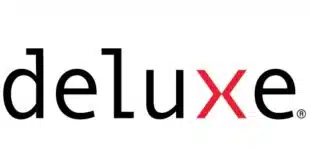While big oil companies at times have temporarily lowered card-acceptance costs in recent years to help gas stations cope with spikes in the price of oil, Shell Oil Co. today said it would permanently lower the price of card processing as well as speed up settlement times for its jobbers and gas-station owners. Both moves will make life a bit easier for Shell outlets and give them another reason to stick with the Shell brand. The cuts apply only to MasterCard Inc. and American Express Co. cards as well as to the Voyager Fleet Systems Inc. fleet-fuel card owned by U.S. Bancorp. When asked by Digital Transactions News, a spokesperson for Houston-based Shell would not say why Visa and Discover transactions apparently aren't part of the program, nor would she identify Shell's merchant acquirer. Shell, though its Shell Downstream US unit, offers card processing to about 14,000 branded gas stations. Some 6,000 stations belong to the Shell Oil Products US network in the western states, while another 8,000 in the eastern and southern states are served through Motiva Enterprises LLC, a 50-50 joint venture of Shell Oil and Saudi Refining Inc. Beginning April 28, Shell will cut MasterCard transaction pricing to 1.65% plus 13 cents from 2% plus 10 cents. On a $50 fill-up, the retailer would pay 95.5 cents to Shell compared with $1.10 under the old pricing plan, a savings of 14.5 cents or 13.2%. MasterCard's current interchange schedule caps interchange on petroleum purchases with consumer cards at 95 cents per transaction, but interchange is only one, albeit the largest, component of a gas station's total card-processing expenses. AmEx pricing will be reduced to 2.45% plus 15 cents from 2.8% plus 15 cents. That translates into a savings of 17.5 cents, or 11.3%, on a $50 sale that currently costs $1.55 but will go down to $1.375. Voyager pricing will drop to 2.35% plus 30 cents from the current 2.95% plus 30 cents. That's a cut of 30 cents on a $50 sale, or 16.9%. A direct retail location selling 1.8 million gallons of gasoline a year would save $3,100 annually, according to estimates from Shell. A wholesaler selling 20 million gallons would save an estimated $34,100. Those estimates work out to savings of 17/100ths of a penny per gallon. Shell also said that it is speeding up settlement times for payment of funds from card transactions by one business day for five days of the week, which it says will improve retailers' cash flow. Currently, Monday's transactions settle on Thursday, but settlement will move up to Wednesday. Tuesday sales will settle on Thursday instead of the current Friday. Wednesday sales will settle on Friday instead of the following Monday, and Thursday sales will settle on Monday instead of the next Tuesday. Friday and Saturday sales will continue to settle on Tuesday, but Sunday sales will move up a day to Tuesday from the current Wednesday settlement. In a statement, the spokesperson said Shell is making the pricing and settlement changes “to improve the operating costs of card acceptance to our channel partners.” The spokesperson would not say how Shell plans to absorb the reduced margins from the lower card pricing. But the move could be a play for the loyalty of independent oil jobbers and retailers that might be wooed by other major oil companies. Shell has not charged its retailers fees for accepting the Shell gas card or the Shell MasterCard, both issued by Citigroup Inc., for more than 10 years. Shell says about 14.7 million people carry those cards. Shell also doesn't charge it outlets for accepting its fleet and gift cards. Sometime after July 1, Shell plans to roll out its so-called Shell Refillable Card, a card that can be loaded online with up to $300 in value. Shell tested the card in late 2005 and early 2006, according to the spokesperson.
Check Also
77% Tire of Drive-Thru Wait and other Digital Transactions News briefs from 5/15/25
SoundHound AI Inc. said of the 94% of U.S. consumers who use voice assistants while driving …





